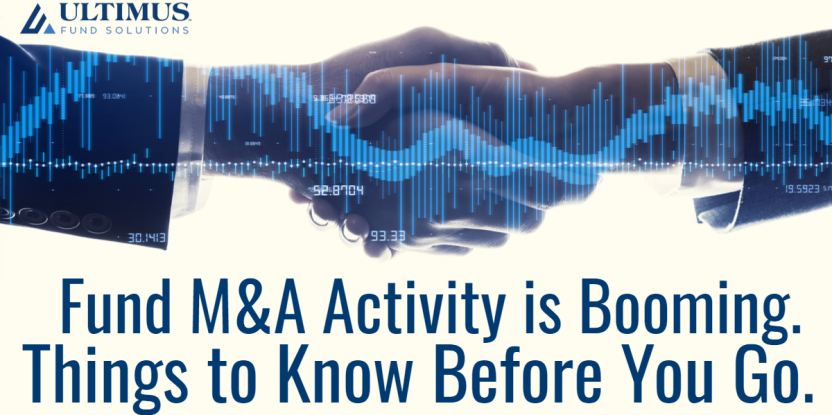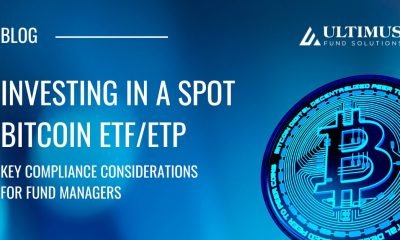Savvy asset managers regularly re-evaluate their business and the market to identify acceleration or pivot strategies that will preserve or enhance their business model. Recently, we’ve seen an increase in asset manager consolidation as managers look for potentially speedier and less risky ways to grow assets. Managers can choose different paths to consolidation: acquire or merge with an existing fund, bring in an investment manager as a subadvisor, or execute a complete acquisition of the investment manager and related funds.
If you’re contemplating a fund merger or acquisition, this article will guide you through strategic and practical considerations.
Does It Make Strategic Sense?
A merger or acquisition should make sense for the buyer and seller since both entities benefit if assets are retained through the process.
Understand buyer motivation. As a fund manager, you should have compelling strategic reasons to grow your fund family. Perhaps you’re trying to gain critical mass for platform access, or you believe critical mass is necessary to pass consultant and institutional investor due diligence screening. You might be trying to achieve profitability so that you no longer need to waive advisory fees. Or perhaps you’re seeking a faster path to diversify your product offerings or access a new asset class.
Regardless of your strategic motivation, understanding the impact on your firm’s differentiators will increase the likelihood of the acquisition’s success. Is your distribution expertise a differentiator? Is there alignment between your investment strategy skillset and the target fund? Do you have a plan to retain existing investors of the acquired fund? What means will you use to acquire additional assets?
Understand seller motivation. Understanding a seller’s motivation is as important as understanding your own, since their motivation may impact the success of the consolidation.
There are a myriad of reasons for asset managers to divest of a fund. They may want to return to their roots in wealth management, focusing on advice and wealth solutions. Or they may wish to focus on investment management rather than product development, vehicle governance and distribution. They may not have a succession plan and want to retire. It’s also possible that an asset manager wants to divest of a fund, recognizing that distribution is not their strength. Or perhaps performance is lagging, and the path to profitability is unclear.
Practical Considerations for Acquisitions
- Costs. Each merger or acquisition has nuances, and this is especially true when it comes to costs. It’s important to understand the impact of consolidation on your expenses. One key factor, for example, is the role the existing fund manager will play in the new endeavor. Another factor is vehicle structure. To guide your assessment, we list here categories of expenses that pertain to registered funds; other structures have different cost categories.
- Proxy fees: Current shareholders must approve a change of investment adviser.
- Attorney fees. Attorneys will have a primary role in drafting material to explain the proposed changes to the current board as well as proxy information for shareholders and SEC filings.
- Advisor-to-advisor agreement. In addition to the board and shareholder documents, you will need a contract covering the business aspects of the transaction.
- Cost of distribution expansion. If expanding distribution is part of the rationale for the transaction there will likely be costs associated with adding a fund to new intermediary platforms, as well as state “Blue Sky” registration expenses.
- Distribution challenges. A fund acquirer must be aware of issues that might affect RIA and broker-dealer assessments. In their role assessing underlying risks for clients they serve, due diligence teams at RIAs and broker-dealers evaluate an investment manager’s track record, experience and organization growth and stability. As such, you should consider carefully how consolidation will impact presentation of performance history, fund objectives and so on. For example:
- Portable performance may not be as portable as anticipated; if the new strategy strays too far from the original strategy, this may have negative impact on sales endeavors.
- Changes to the investment objective should be kept to a minimum as a large deviation may be perceived negatively. Such changes may also cause the fund to be screened out entirely for one or several years.
- Changes to fund identifiers, such as a new CUSIP or ticker, can disrupt trade processing, though your fund distributor should have strategies to minimize or eliminate those issues.
- Shareholder retention. To maximize opportunity and retain assets, it’s important to have minimal impact on existing shareholders. Consider whether the selling investment manager has discretion over the assets and knows the clients. If not, do you know the decision makers with the existing shareholders to assist in client retention? What other actions do you—and the fund seller—need to take to retain clients and assets?
- Regulatory implications. Disclosures about changes to the fund will need to be filed with the SEC and potentially other regulators (for example, CFTC if futures are a part of the strategy) and made available to current and new investors. Asset managers who are new to managing mutual funds can expect an initial examination from the SEC may be scheduled in the first 12 to 18 months after becoming adviser to a fund.
In Need of Guidance or Advice? Your Administrator can Help.
If you’re thinking about a fund acquisition or merger, consider reaching out to your fund administrator for consultative advice. Ultimus, for example, provides guidance on structuring options and the reorganization process. We perform an expense analysis on structure choices so that the cost of acquisition is known up front. We also discuss distribution opportunities. Importantly, we aid clients’ awareness of the numerous considerations of the acquisition. Once a decision has been made to proceed, Ultimus guides clients through the process, performing project management to make the reorganization and conversion process painless.




